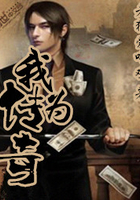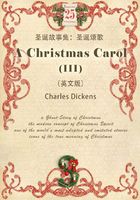As the clock upon the schoolroom chimney-piece struck the hour, Arctura entered, and at once took her seat at the table with Davie--much to the boy's wonder and pleasure. Donal gave her a Euclid, and set her a task: she began at once to learn it--and after a while so brief that Davie stared incredulous, said, "If you please, Mr. Grant, I think I could be questioned upon it now."
Less than a minute sufficed to show Donal that she thoroughly understood what she had been learning, and he set her then a little more. By the time their work was over he had not a doubt left that suchlike intellectual occupation would greatly subserve all phases of her health. With entireness she gave herself to the thing she had to do; and Donal thought how strong must be her nature, to work so calmly, and think so clearly, after what she had gone through that morning.
School over, and Davie gone to his rabbits.
"Mistress Brookes invites us to supper with her," said lady Arctura.
"I asked her to ask us. I don't want to go to bed till I am quite sleepy. You don't mind, do you?"
"I am very glad, my lady," responded Donal.
"Don't you think we had better tell her all about it?"
"As you think fit. The secret is in no sense mine; it is only yours; and the sooner it ceases to be a secret the better for all of us!"
"I have but one reason for keeping it," she returned.
"Your uncle?"
"Yes; I know he will be annoyed. But there may be other reasons why I should reveal the thing."
"There may indeed!" said Donal.
"Still, I should be sorry to offend him more than I cannot help. If he were a man like my father, I should never dream of going against him; I should in fact leave everything to him he cared to attend to.
But seeing he is the man he is, it would be absurd. I dare not let him manage my affairs for me much longer. I must understand for myself how things are going."
"You will not, I hope, arrange anything without the presence of a lawyer! I fear I have less confidence in your uncle than you have!"
Arctura made no reply, and Donal was afraid he had hurt her; but the next moment she looked up with a sad smile, and said, "Well, poor man! we will not compare our opinions of him: he is my father's brother, and I shall be glad not to offend him. But my father would have reason to be dissatisfied if I left everything to my uncle as if he had not left everything to me. If he had been another sort of man, my father would surely have left the estate to him!"
At nine o'clock they met in the housekeeper's room--low-ceiled, large, lined almost round with oak presses, which were mistress Brookes's delight. She welcomed them as to her own house, and made an excellent hostess.
But Donal would not mix the tumbler of toddy she would have had him take. For one thing he did not like his higher to be operated upon from his lower: it made him feel as if possessed by a not altogether real self. But the root of his objection lay in the teaching of his mother. The things he had learned of his parents were to him his patent of nobility, vouchers that he was honourably descended: of his birth he was as proud as any man. And hence this night he was led to talk of his father and mother, and the things of his childhood. He told Arctura all about the life he had led; how at one time he kept cattle in the fields, at another sheep on the mountains; how it came that he was sent to college, and all the story of sir Gibbie. The night wore on. Arctura listened--did nothing but listen; she was enchanted. And it surprised Donal himself to find how calmly he could now look back upon what had seemed to threaten an everlasting winter of the soul. It was indeed the better thing that Ginevra should be Gibbie's wife!
A pause had come, and he had fallen into a brooding memory of things gone by, when a sudden succession of quick knocks fell on his ear.
He started--strangely affected. Neither of his companions took notice of it, though it was now past one o'clock. It was like a knocking with knuckles against the other side of the wall of the room.
"What can that be?" he said, listening for more.
"H'ard ye never that 'afore, maister Grant?" said the housekeeper.
"I hae grown sae used til't my ears hardly tak notice o' 't!"
"What is it?" asked Donal.
"Ay, what is't? Tell ye me that gien ye can!" she returned "It's jist a chappin', an' God's trowth it's a' I ken aboot the same! It comes, I believe I'm safe to say, ilka nicht; but I couldna tak my aith upo' 't, I hae sae entirely drappit peyin' ony attention til't.
There's things aboot mony an auld hoose, maister Grant, 'at'll tak the day o' judgment to explain them. But sae lang as they keep to their ain side o' the wa', I dinna see I need trible my heid aboot them. Efter the experrience I had as a yoong lass, awa' doon in Englan' yon'er, at a place my auntie got me intil--for she kenned a heap o' gran' fowk throuw bein' hersel' sae near conneckit wi' them as hoosekeeper i' the castel here--efter that, I'm sayin,' I wadna need to be that easy scaret?"
"What was it?" said lady Arctura. "I don't think you ever told me."
"No, my dear lady; I wud never hae thocht o' tellin' ye ony sic story sae lang as ye was ower yoong no to be frichtit at it; for 'deed I think they're muckle to blame 'at tells bairns the varra things they're no fit to hear, an' fix the dreid 'afore the sense.
But I s' tell ye the noo, gien ye care to hear. It's a some awsome story, but there's something unco fulish-like intil't as weel. I canna say I think muckle 'o craturs 'at trible their heids aboot their heids!--But that's tellin' 'aforehan'!"
Here the good woman paused thoughtful.
"I am longing to hear your story, mistress Brookes," said Donal, supposing she needed encouragement.














